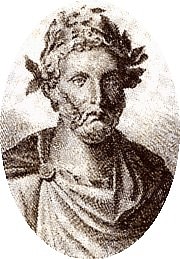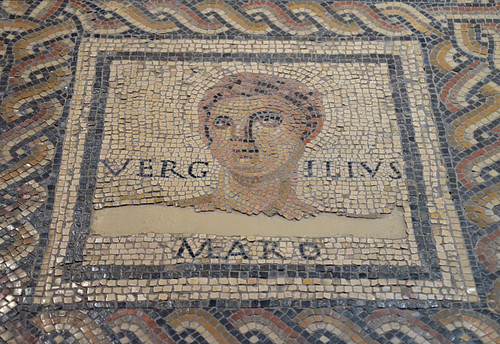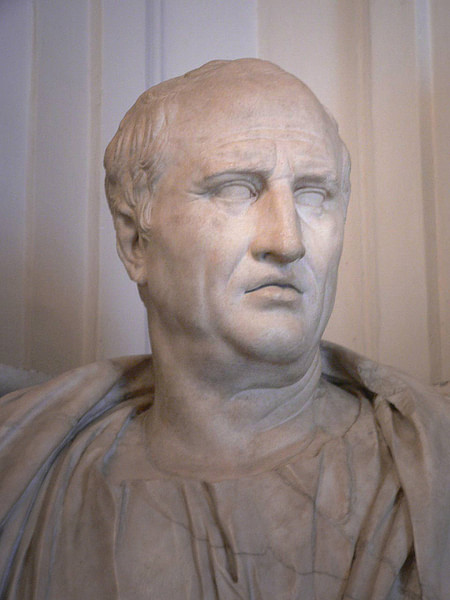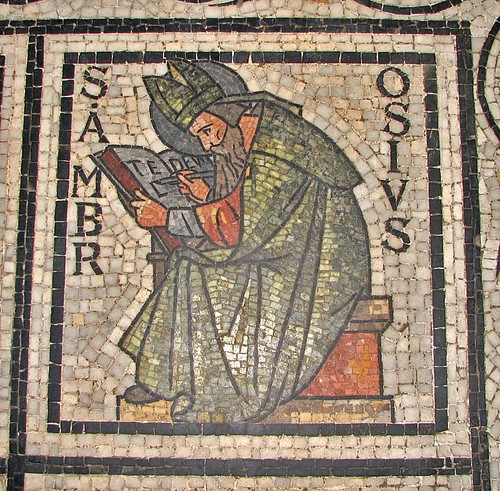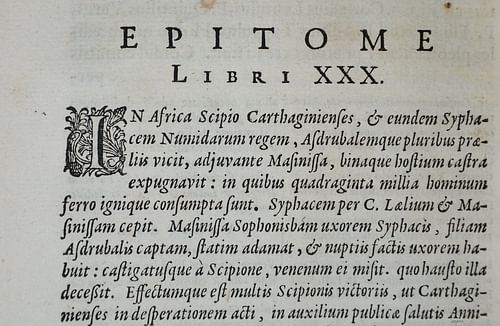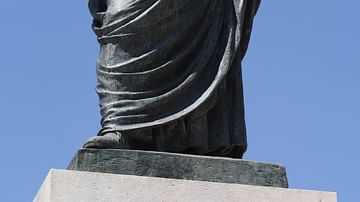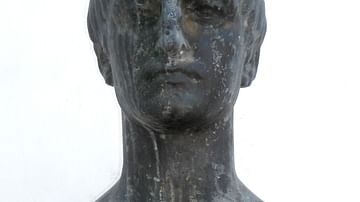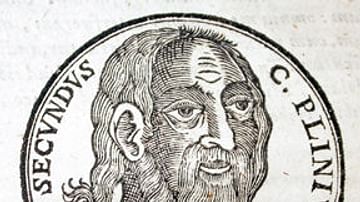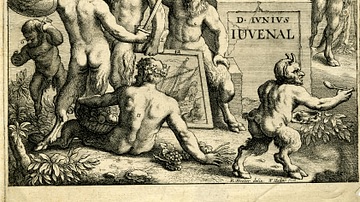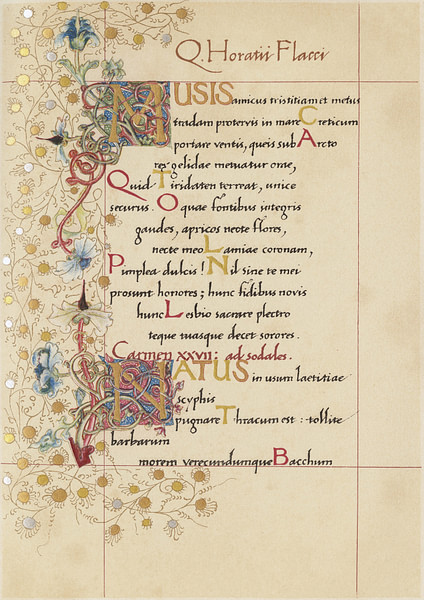
The Roman Empire and its predecessor the Roman Republic produced an abundance of celebrated literature; poetry, comedies, dramas, histories, and philosophical tracts; the Romans avoided tragedies. Much of it survives to this day. However, Roman Literature cannot stand alone. They owe a debt to their neighbor, the Greeks (more specifically Athens). Most educated Romans were well aware of their own literary inferiority, and because of this Roman writers could easily copy Greek classical themes, even going so far as to translate many of the notable Greek works into Latin. However, to many Romans, this exercise would have been needless, for a number of highly educated citizens could speak and read both Greek and Latin. Many young, upper-class Romans even continued their education in Athens. Although the link to Greek Hellenism would remain for years to come, the Romans would soon develop a rich literature of their own.
Greek influence
This indebtedness to Greece was even recognized by the writers themselves. Horace, one of the poets of the Golden Age of Roman literature wrote that Greece introduced the arts "into a backward Latium." Historian Nigel Rodgers in his Roman Empire wrote that Greek authors originated many philosophical and political concepts that influenced such Romans as Cicero, Seneca, Boethius, Catullus, and Virgil - "a Greek and Roman synthesis" (258). He added that Rome could not and did not deny that Greece was more refined and superior in both intellectual and cultural pursuits from technology and philosophy to poetry and sculpture. In reality, Rome could hardly deny a closeness to Greece since Greek cities had existed on both the lower peninsula and Sicily for decades.
Comic playwrights
According to Rodgers, there was little in the way of Roman literature before the Punic Wars against Carthage (264 – 146 BCE). It was during this time that Rome became involved in the Macedonian Wars, eventually absorbing the Greek city-states. Roman literature began near the end of the 3rd century BCE with the emergence of such comic playwrights as Plautus, Terence, and Ennius. Quite often their plays would be performed during one of the city's many festivals where the audience was mostly male.
The first of the three was Plautus (254 – 184 BCE). Of his more than 130 plays, only 20 complete works survived. According to ancient sources, he was born in Umbria and began his career as a stage carpenter. He did not begin to write anything until middle age, adapting Greek comedies into Latin. He used the usual jokes, puns, and songs (duets and arias) which quenched the Roman desire for slapstick. Although he did not write in Greek, all of his characters had Greek names and resided in Greek cities. Two of his more notable works are Aulularia (The Pot of Gold) and Captivi (The Prisoners).
Publius Terentius Afer, better known as Terence (195 – 159 BCE), and Ennius (239 – 169 BCE) were Plautus' contemporaries. Terence arrived in Rome as a slave from North Africa, eventually gaining both his freedom and an education. Many of his plays, such as the comedy Eunuchus (The Eunuch), did not appeal to many of the unsophisticated Romans; he was criticized by his contemporaries for "cannibalizing" Greek plays.
Ennius, however, was more highly touted than either Plautius or Terence and is considered to be the "father of Latin poetry." Born in Calabria in southern Italy (Magna Graecia), he served in the Roman army in Sardinia, arriving in Rome with fellow writer Cato the Elder around 204 BCE, eventually obtaining the much-desired Roman citizenship. Even though he claimed to be the reincarnation of Homer, only fragments of his works have survived. Rodgers notes that he demonstrated how Latin poetry had achieved greatness while still emulating Greek forms. His Annals was a history of Rome from the mythical Trojan hero Aeneas through his own day. Unfortunately, he died in poverty.
Golden Age of Roman Poetry
As foretold by Ennius, Latin literature would soon truly come into its own. The Golden Age of Roman poetry (c. 70 BCE – 14 CE) produced such memorable writers as Virgil, Horace, Catullus, Propertius, Tibullus, and Ovid. According to Rodgers, Virgil, Horace, and the exiled Ovid created a classical style of writing comparable to many of the great Greek authors.
One of these distinguished poets was Publius Vergilius Maro or Virgil (70 – 19 BCE). Unlike many of the poets who followed him, Virgil provided his audience with a more romanticized picture of Rome. Hailing from Cisalpine Gaul and a family of modest farmers, many of Virgil's themes demonstrate his love of the rural life. His Eclogues, written around 37 BCE, spoke of the loves and lives of shepherds, while his Georgics, written around 29 BCE, praised Roman country life: plowing, growing trees, tending cattle, and even keeping bees. However, his most memorable work is the Aeneid, an epic telling of the journeys of Aeneas after the fall of Troy through the founding of Rome by Romulus and Remus to the age of Augustus. As Aeneas was the ideal model for the Roman way of life, Augustus believed the poem demonstrated a fulfillment of Rome's destiny.
Quintus Horatius Flaccus, more commonly known as Horace (65 BCE – 8 BCE), was the son of a freedman. Although he fought on the wrong side at the Battle of Philippi (against Augustus), he endeared himself to the emperor partially because of his poetry but also due to his friendship with Virgil. In keeping with his Epicurean philosophy, Horace's poems demonstrated a joy for life and a love of nature. Among his many works are Satires, which was a criticism of the vice that was rampant in Rome, Epodes, inspired by the Greek author Archilochus, and Odes, a celebration of life in Rome during the age of Augustus. In all of his works, Horace always demonstrated a deep respect and admiration of the Greeks and believed Rome had to acknowledge the Greek superiority in all intellectual and cultural fields.
This new age under the reign of Augustus also produced many young poets who reacted differently to the changes in Roman politics and society. The leader of these emerging poets, Gaius Valerius Catullus (84 BCE – 54 BCE) is considered one of the greatest of all Roman lyric poets. Avoiding any personal involvement in politics, he looked to his neighbors to the east, such Greek authors as Sappho and Callimachus, for inspiration. According to historian Rodgers, his poetry mingled both passion and urbanity with an awareness of life's impermanence and he "raised colloquial Latin to new heights" (386). Similarly, historian Norman Cantor in his Antiquity said that Catullus recognized the mortality of man and exposed a different side of Roman life. His poems revealed the existence of pessimism, individualism, and deep feelings of self-indulgence within Roman society:
Furius, you who have neither a slave, nor a money-box, nor a bug, nor a spider, nor a fire, but who have a father and a stepmother too, whose teeth can chew even a flintstone, you lead a merry life with your father and that dry stick, your father's wife. (Catullus, Poem 23)
Other poets were inspired by long lost loves. The first of these lovelorn poets was Sextus Propertius (54 – 16 BCE), the son of an equestrian who unlike his fellow poets received legal training but rejected any career in politics. His most famous book of poems was Elegies. A friend of both Ovid and Virgil, he even received a home from the patron of arts Maecenas on the Esquiline Hill; however, unlike some of his contemporaries, he refused to write an epic about emperor Augustus. Like Propertius, Albius Tibullus (50 – 19 BCE), another son of an equestrian family, wrote about a lost love, Delia, and, like Virgil, he idealized the country life.
Probably the most famous or infamous poet of the era is Publius Ovidius Naro or Ovid (42 BCE – 18 CE). After Ovid, Roman poetry would take a brief hiatus. Rodgers wrote that with Ovid Latin poetry had finally attained an "elegance and lyricism" to rival that of any Greek. To Ovid love was the only "game worth playing." His Amores, published in 22 BCE, told in a very lighthearted style about the misadventures of a young man and his love for an unobtainable young girl. His Heroides was a series of 15 letters supposedly written by Greek and Roman mythological female figures such as Penelope and Dido to their lovers who had either mistreated or abandoned them. His Ars Amatoria mirrored Horace's Ars Poetica. However, his most famous work is the 15 books of mythology Metamorphoses, an epic poem that spoke not only of humanity's interaction with the gods but also of heroes and heroines. Unfortunately, Augustus did not look upon his poetry with admiration and exiled him. Although not appreciated during his lifetime, his works of poetry have influenced many of the great authors throughout history including Chaucer, Milton, Dante, Shakespeare, and Goethe.
Silver Age of Roman Poetry
Two famous Roman poets linked to what has been called the Silver Age of Roman poetry are Marcus Annaeus Lucanus, better known as Lucan (39 – 65 CE), and Publius Papinius Statius (45 – 96 CE). Lucan, born in Spain, was the nephew of Seneca, the advisor of Emperor Nero. He even studied Stoic philosophy in Athens; however, his suspected involvement in the Piso conspiracy would cost him his life. Pharsalia, his most famous work, dealt with the Roman civil war of the 1st century BCE. His lesser known contemporary Statius wrote the twelve books of Thebaid concerning Oedipus's curse on Thebes.
Roman Prose
While there was an abundance of poets in Rome, there were also many outstanding writers of prose. The city was alive with orators who took to the stage in the Roman Forum to voice their views to the masses. It was a platform as well for lawyers who wished to plead for their clients. One of the more memorable was Marcus Tullius Cicero (106 – 43 BCE), not only a brilliant statesman and author but also an orator who, besides his 911 letters, wrote on subjects ranging from art to education. In a series of caustic letters, he spoke out against the corrupt ex-governor of Sicily Verres forcing him into retirement, though the ex-governor would later be set free by Caesar. He wrote political essays such as De re publica (On the State) and De legibus (On the Laws) as well as five books in Latin on ancient philosophy – De finibus bonorum et malorum. His Epistulae ad familiares (Letters to family and friends) act as vivid historical and cultural documents of the period and give an insight into the inner workings of late Republic. Unfortunately, he had spoken out against Julius Caesar, something that angered the dictator's heir Octavian (Augustus). Having been exiled once, Cicero could not save himself and was executed before he could escape Rome.
Lucius Annaeus Seneca (4 BCE – 65 CE) was a student of Stoic philosophy and tutor to Emperor Nero. Not only an essayist, he wrote nine plays based on such Greek legends as Oedipus, Heracles, and Medea. He also authored 124 essays on subjects ranging from vegetarianism to the humane treatment of slaves. After being implicated in the Piso conspiracy, he was forced to commit suicide by Nero.
Pliny the Elder (23 – 79 CE) or Gaius Plinius Secundus was a Roman administrator who wrote on the Germanic wars and whose Natural History (Naturalis Historia) contained information on the known universe as well as tracts on animals, trees, and plants, all in 37 volumes. Volume III, for example, describes the geography of Italy and the topography of Rome:
If one were further to take into account the height of the buildings, a very fair estimate would be formed, that would bring us to admit that there has been no city in the whole world that could be compared to Rome in magnitude. (Pliny the Elder, Natural History, Book III, 67)
Observing the eruption of Mt. Vesuvius in 79 CE, Pliny the Elder died after inhaling fumes. His nephew Pliny the Younger (61 – c. 112 CE) had a successful career as both a senator and consul under Emperor Trajan. He is most noted for his long series of letters on a variety of topics to the emperor.
There were also a number of Roman novelists: Petronius, Apuleius, Martial, and Juvenal. Petronius or Gaius Petronius Arbiter (c. 27 – 66 CE) served as both a consul and governor of Bithynia. His most famous work and the only one to survive is the Satyricon, a work considered witty but amoral and hedonistic. Unfortunately, like several of his contemporaries, he was implicated in the Piso conspiracy during Nero's reign and was forced to commit suicide in 66 CE.
Lucius Apuleius (c. 124 – c. 170) from North Africa wrote a number of excellent works including the amoral The Golden Ass which is the only complete Roman novel to survive. One of the eleven separate books included in the novel spoke of the adventures of a young man named Lucius who is transformed into an ass. His other works include Apologia, Florida, and De Deo Socratis.
Marcus Valerius Martialis (c. 40 – c. 104 CE), better know as Martial, although originally from Spain, spent most of his life in Rome. A close friend of Emperor Domitian, he wrote epigrams on a variety of subjects, some of which might be called pornography:
Why don't I kiss you, Philaenis? You're bald. Why don't I kiss you, Philaenis? You're red-headed. Why don't I kiss you, Philaenis? You're one-eyed. Whoever kisses all that, Philaenis, sucks. (Martial, Epigram 2.33, in Williams, 128)
Decius Junius Juvenalis or Juvenal (c. 60 – c. 130 CE) is considered the greatest of the Roman satirists. Unfortunately, he ran afoul of Emperor Domitian who believed he had been portrayed negatively in the writer's Satires and may have been exiled to Egypt; his place of death is unknown.
Later Roman Literature
The spread of Christianity gave rise to a new type of literature from the 4th century CE, with clerics writing on Christian morality in sharp contrast to the amoral and often sexually explicit works of the previous centuries. One of the premier clerics of the 4th century was St. Ambrose (c. 340 – 397 CE). Ambrosius was the son of the praetorian prefect of Gaul and schooled in the classical Greek tradition. He served as bishop of both Rome and Milan as well as governor of Aemilia-Liguria despite often challenging the Emperor Theodosius. Among his writings are De officiis ministrorum, a discussion of morality and ecclesial discipline as well as De obitu Valentiniani and De obitu Theodocii which established the concept that a Christian emperor was a son of the church.
Decimus Magnus Ausonius (310 – 395 CE) came from Bordeaux and served as the tutor for the future emperor Gratian; he was a noted grammarian and rhetorician. He was less concerned with Christian values and wrote on a variety of subjects. His more noted works are Praefatiunculae (Prefaces) and Eclogarum Liber (Eclogues), verses on astronomy and astrology. Lastly, one cannot forget the writings of St. Augustine (354-430 CE). He is most famous for his De civitate Dei (The City of God) which he wrote near the end of Western Roman Empire at the time of the invasion of 410 CE and his Confessions.
While Ambrosius, Augustine, and Ausonius represented the emergence of Christian writers, one pagan author also appeared on the scene, Claudius Claudianus (370 – 404 CE). Claudianus, a native of Alexandria, was the court poet under Emperor Honorius. He wrote panegyrics for Honorius and Stilicho, the Roman general. Influenced by earlier poets, both Roman and Greek, he is considered the last important poet of the classical tradition.
Historians
Besides the writers of poetry and prose, there were the historians: Sallust, Tacitus, Livy, and Suetonius. Unfortunately, much of early Roman history is based on myth, and some historians sadly accepted it as fact. However, real or not, it gave the Romans a sense of identity. The first historian of note was Gaius Sallustius Crispus or Sallust (c. 86 – 35 BCE), a former senator expelled for immorality. So inspired by the Greek historian Thucydides, he turned to writing history. An enemy of Cicero, he sided with dictator-for-life Julius Caesar who helped him fight charges of malpractice while governor of Africa. His most famous works include Bellum Catilinae, which dealt with the Catiline conspiracy, Bellum Iugurthinum, a book concerned with the Roman war against the Numidian king Jugurtha, and Histories, which remains only in fragments.
Livy (59 BCE – 17 CE) wrote a detailed history of Rome in 142 books, however, unfortunately only 35 survive. Although he accepted many myths as fact, his history demonstrated his belief in Rome's destiny.
Cornelius Tacitus' (58 – 120 CE) works include De vita Iulii Agricolae, which spoke of his father-in-law's time as governor of Britain; Germania, dealing with the wars against the tribes of Germany; and the fragmented Annals and Histories.
Lastly, Gaius Suetonius Tranquillus (c. 69 – c. 130 CE) must be mentioned. His De viris illustribus included short biographies of Roman men of letters; poets, grammarians, orators, and philosophers. His De vita Caesarum (The Twelve Caesars) spoke of the Roman 'caesars' from Julius Caesar to Domitian. Using earlier histories as sources, his works are considered interesting but not totally reliable. They are concerned more with an emperor's personal habits than with his political accomplishments.
Unfortunately, Rome did not produce many philosophers like Greece; however, there are two who should, at least, be mentioned. Marcus Aurelius was not only an excellent emperor but also a Stoic philosopher; his Meditations was written Greek. Finally, T. Lucretius Carus (99 – 55 BCE) wrote On the Nature of the Universe, an Epicurean doctrine that said the world was mechanistic, operating without divine intervention and true happiness existed from complete withdrawal from public life.
Legacy
From its infancy, Roman literature borrowed heavily from the Greeks. However, they were able to shake the shackles and create a vibrant literature of their own; poetry, prose, and history. The Roman authors influenced countless others in the decades and centuries that followed – Dante, Shakespeare, Milton, and many more. One cannot enter either a library or bookstore without seeing Roman poetry and prose on the bookshelves; Cicero, Tacitus, Suetonius, as well as Virgil and Horace. Western literature owes a debt of gratitude to the Romans for what they have given the world.
